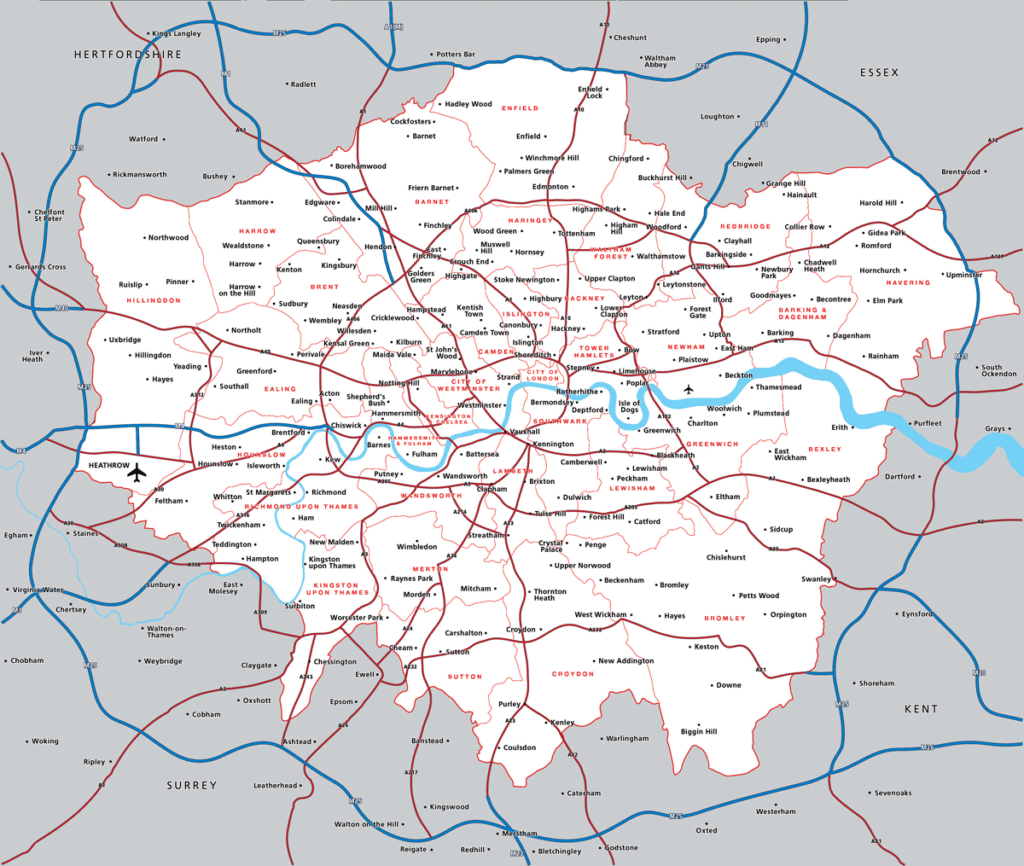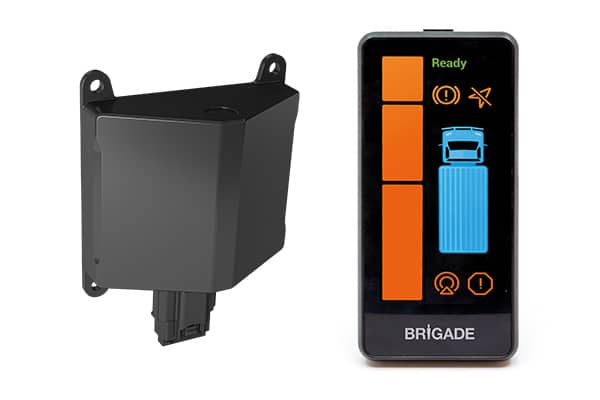Ranging from DVS kits, recording devices, cameras, warning signals and object detection radars for commercial, mobile plant and leisure vehicles.
TNK Engineering is a mobile service situated in East Grinstead providing installation and repairs of safety systems and climatic control. We specialise in commercial vehicle camera systems configuring to various regulations throughout the South East.
We are a Brigade Electronic Service Partner meaning we supply and install vehicle safety products ranging from recording devices, cameras, warning signals and object detection radars for commercial, mobile plant and leisure vehicles. We also install number of Durite products from CCTV kits and vehicle safety product to supplying various lighting to battery booster packs.
The latest innovation in side-detection safety, specifically designed to protect cyclists from collisions with HGVs.

If you need an install completed or any assistance please get in touch to get booked in with our engineer.
Brigade’s Sidescan®Predict is the next generation of side-detection sensor system part of the new Progressive Safe System (PSS) for the Direct Vision Standard (DVS) changes for October 2024

Direct Vision Standard (DVS) was introduced in 2020, it is a legislation that requires all goods vehicles weighing more than 12 tonnes to possess a permit to drive in Greater London.
Enforced by Transport for London (TfL), the permit is based on a vehicle’s ‘star rating’, indicating how much a driver can see from the cab in relation to other road users. The rating (0-5) is given on how the vehicle left the production line and will not take into account any aftermarket safety systems that have been fitted.
HGVs that do not meet the minimum star rating have to be equipped with a series of vehicle safety measures to improve and aid the driver’s indirect vision prior to applying for the permit. Non-compliant HGVs are banned from entering Greater London, with daily fines for both operators and drivers without permits.
The minimum star rating requirement for the Direct Vision Standard will increase from one to three stars in October 2024. This means that vehicles that fall short of the star rating will need to be equipped with extra safety equipment to obtain a permit.
Previously, the permit for extra equipment was called a Safe permit, but from October 2024 that will change and be known as the Progressive Safe System (PSS). The PSS requires the latest advancements in technology and will mean that some operators will need to replace their existing equipment with new technology.
| Pre-October 2024 | Post October 2024 |
Vehicles affected? 0 Star rated vehicles Requirements? Fit a DVS Safe System in order to qualify for a permit. | Vehicles affected? 0, 1 and 2 star rated vehicles Requirements? Fit a Progressive Safe System to qualify for a permit. |
The Progressive Safe System includes new additions:
1.Active Side Sensor Systems that can:
Differentiate between moving and stationary objects
Predict collisions based on the trajectories of the vehicles and the vulnerable road user (VRU) to calculate if a collision is imminent.
Provide a specified alarm strategy to warn of the severity of the situation.
2.Front detection system for Moving Off Information System (MOIS) that requires:
Two alarms: one when the driver detects a VRU when preparing to move off, and one when the vehicle detects a VRU as it has begun its forward manoeuvre.
When the vehicle is stationary, the system must provide a signal to inform the driver of any VRUs who are in or about to enter the critical blind spot in front of vehicle.
The collision warning must be a combination to at least two modes from an optical signal, acoustic or haptic.

How long will the permit last?
| Vehicle Star Rating | Permit Expiry | Certificate |
| 0,1 & 2 (applying before June 2024) | 27th Oct 2024 | Will need to comply with the PSS requirements and re-apply |
| 0,1 & 2 (applying from 24th June 2024) | 28th Oct 2030 | Will need to comply with the PSS requirements |
| 3,4, & 5 | 28th Oct 2030 | Can automatically apply |
The scheme will be implemented by a decriminalised Traffic Regulation Order, meaning a Penalty Charge Notice (PCN) can be issued. Automatic Number Plate Recognition (ANPR) cameras will detect a vehicle and cross-check it against TFL’s permit database. All vehicles must have a permit, regardless of star rating.Operators/hauliers without a permit may be issued a PCN of £550 and £130 for the driver, even if the vehicle is five star rated.


The permit is free of charge and there is no requirement to display anything in the vehicle. To apply for a permit, you need to access the TfL online application form. The pre-registration period for HGV safety permits under the Progressive Safe System will open June 2024.
| Step 1 | Step 2 | Step 3 |
Find out your vehicle’s direct vision star rating by visiting tfl.gov.uk/direct-vision-permit
| For vehicles rated 0, 1 & 2 stars, you must ensure the PSS id fitted, You must attach:
| For vehicles rated 3, 4 & 5 stars, you can apply online tfl.gov.uk/direct-vision-permit You will need to enter your vehicle details, operator details and your contact details. If you own multiple vehicles, you can submit this information in a spreadsheet template. |
Evidence needed to comply with the PSS
Provide two photographs to show you have fitted the PSS equipment:
The PSS sets out specific test procedures and it is the responsibility of the DVS equipment manufacturer to confirm that products meet the requirements via a ‘sensor functionality statement.’ This should include details of how the products link with other systems and confirmation that they do not adversely affect any safety critical aspects or performance of the vehicle. If a product has an E-mark it will meet these requirements.
The document will need to be uploaded by the operator. If there are any non-compliance issues identified at a later date, it will be easily identified from the manufacturer used. Please visit the Brigade website to obtain the sensor functionality statement.
Fitters will also need to confirm that the sensors fitted to the vehicle are active and fitted in compliance with the technical PSS specification.
